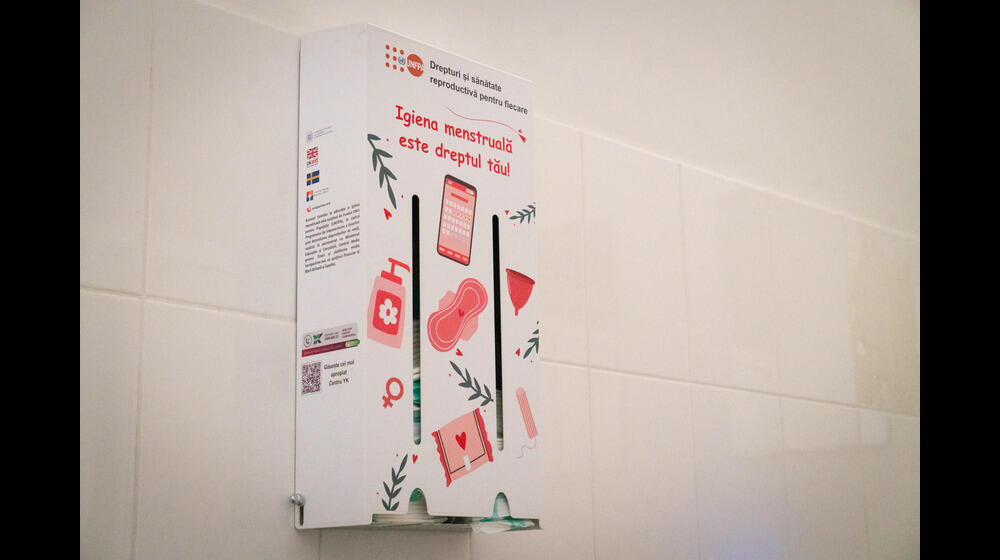In a move to prioritize student health and well-being, four schools in the Republic of Moldova have been equipped with dispensers offering free-of-charge absorbent pads. Complementing this initiative, the schools have also established doctor's offices, school psychologist's offices, and friendly classrooms aimed at teaching life skills to teenagers. These interventions, combined with educational and informative activities, are designed to foster a safe and supportive environment for students’ physical and psycho-emotional health.
The pilot program, implemented from 2023 to 2024, is being conducted in four schools across the country: "Mihail Sadoveanu" Theoretical High School in Hincesti municipality, "Mitropolit Nestor Vornicescu" Theoretical High School in Lozova village, Străseni, "Ion Creangă" Gymnasium in Ermoclia village, and "Ion Creangă" Theoretical High School in Causeni.
During a visit to Hâncești, Minister of Education and Research Dan Perciun engaged in discussions with students and specialists from "Mihail Sadoveanu" High School about the significance of this initiative.
“It's evident that your school is in a more advantageous position compared to others. In some educational settings, basic necessities like soap, paper, and sanitary facilities are lacking. Your proactive approach sets a good example. And at the European level, you are quite progressive – few countries have such comprehensive facilities within schools. This initiative breaks down societal taboos surrounding topics like sex education and personal care, fostering a more open and comfortable environment for students to learn and grow,” said the minister.
Natalia Plugaru, UNFPA Deputy Representative, expressed gratitude to the high school administration for their openness and involvement in the program.
"A school environment that offers favorable conditions for studying health education, access to the services of a doctor and a psychologist, as well as dispensing menstrual hygiene products for free, are essential school interventions to ensure health, equal learning opportunities, and the reduction of school absenteeism. This is a new program in Moldova and we hope to be able to replicate it in as many schools as possible in the country," noted Natalia Plugaru.
According to the administration of "Mihail Sadoveanu" High School in Hâncești, such an initiative is welcome because the high school hosts students from the entire district, including from nearby villages. It often happened that girls needed pads for personal hygiene during the day and had to go home if there was no immediate solution, the nurse explained.
Dispensers and absorbents comply with all international safety and quality standards. The menstrual boxes will be constantly replenished until the end of the current academic year. In total, more than 700 girls from middle and high school classes in the participating schools will have access to menstrual hygiene products.
The health and menstrual hygiene program is implemented by the UN Population Fund (UNFPA) in partnership with the Youth Media Center and the Ministry of Education and Research, with financial support from Great Britain and Sweden.
In addition to the infrastructure created, during 2023, the program organized trainings for students and teaching/non-teaching staff from the four pilot schools on various topics, including prevention of unplanned pregnancy in adolescence, bullying, menstrual hygiene, free health services available to young people, the role of the optional subject "Health Education," and other important topics for their development.


